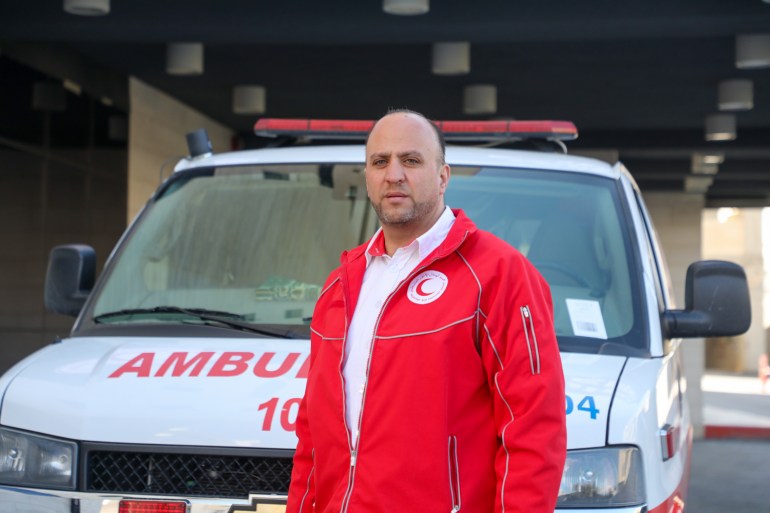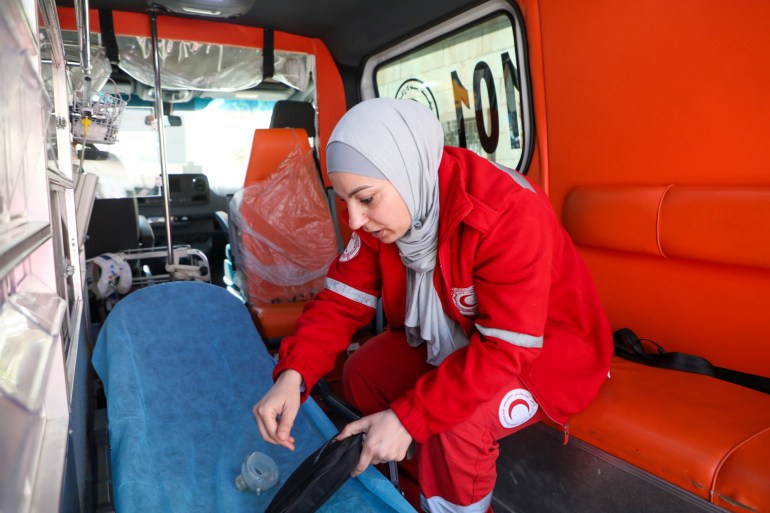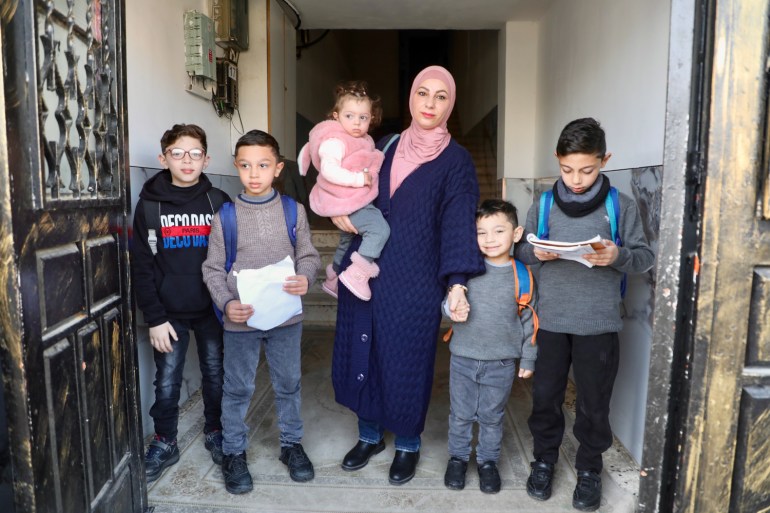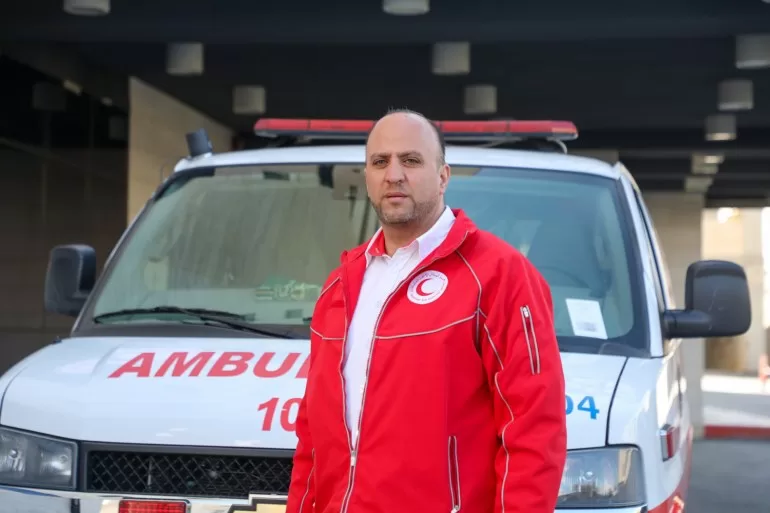The 46-year-old Palestinian Red Crescent Society (PRCS) medic has been shot three times but it is the images he sees every night on his television from Gaza that have been hardest to deal with psychologically.
Tension continues to rise in the West Bank, where at least 433 Palestinians have been killed since the start of the war on Gaza on October 7, including more than 116 children, mostly as a result of Israeli raids. And Jawdat cannot escape the thought that the devastation he sees in Gaza will soon be the reality where he is.
His family is just as worried.
Jawdat’s eldest child, eight-year-old Muhammad, asks if they will ever be in a situation where Jawdat will have to rescue them from their bombed-out home, like the images he sees from Gaza. Six-year-old Saba asks Jawdat what his reaction would be if he saw her and her two siblings dead.

“I haven’t found the answers [to the questions] yet, and I can’t comprehend their questions,” Jawdat tells Al Jazeera from a PRCS facility in Hebron. “But despite these difficulties and the extremely difficult psychological conditions, I’ve accepted [the situation] we work in, and I’m proud of the humanitarian mission we are accomplishing.”
Israeli restrictions
PRCS paramedics work around the clock providing services to Palestinians. They deal with everything from traffic accidents to Israeli army and settler attacks.
One of Jawdat’s colleagues, 42-year-old Lina Amro, is a mother of five and has been working for the PRCS for 15 years.
She describes her typical day – preparing her children for school, then heading to work, putting on her uniform and preparing her first aid kit before waiting for the calls to come in.
But since the beginning of Israel’s war on Gaza, the job has gotten harder.
The Israeli military has increased the number of road closures for Palestinians across the West Bank, making waiting times much longer for Jawdat and Lina and sometimes preventing them from being able to reach the casualties in time to save them.
“Fear and dread have increased because of the many dangers that surround us and the difficulties and obstacles we face during our work as a result of the many barriers and restrictions we face,” Lina tells Al Jazeera.

Those restrictions, which Israel says are necessary for security reasons, have forced the paramedics to look for alternatives – but that can lead to problems.
“The entrances to cities are closed at night, so when there is someone who needs to reach a hospital, we use a handover method at the checkpoint,” Jawdat says, describing how ambulances park on either side of the checkpoint and then physically hand the patient over rather than crossing through the checkpoint with the vehicle.
“This is risky and stopping us from approaching the checkpoints, as well as the death threats and the shots fired towards us, prevent us from being able to bring the patient [to hospital] promptly,” Jawdat explains. “In some instances, it took 75 instead of 10 minutes, which is dangerous for the patient … We need every minute we can get to save someone’s life.”
Targeting Palestinians
Jawdat says the danger for paramedics is increasing, particularly in light of the killings of more than 350 medical workers by Israel in Gaza and repeated attacks on hospitals.
“The Israeli army targets every Palestinian … even though we are protected as an organisation by international humanitarian law,” Jawdat says, pointing to the killing of two PRCS paramedics in Gaza who were sent to rescue six-year-old Hind Rajab who called pleading for help after the Israeli army killed all the family members in a car with her.

“Coordination was under way with the Red Cross to ensure that the ambulance would arrive at the location of the child, and when the message arrived giving permission for the ambulance crews to proceed, our colleagues headed to the location,” Jawdat recounts. “Within less than half an hour, communication with the colleagues inside the vehicle was cut off, and for a period of 12 days, we were not allowed to advance towards the location, and we were unable to get any information [about what had happened].”
The Red Crescent was forced to wait for the army to withdraw and then found only “a melted vehicle” and “decomposed bodies”, he says.
Israel says it targets only sites where Hamas fighters are hiding or infrastructure and denies targeting civilians. But the story of the attempted rescue of Hind typifies the dangers Palestinian paramedics face in an environment where they know that their medical uniforms can offer little protection from Israeli fire.
It is a reality Jawdat and Lina contend with every day as they hope to make it home to their families.
“[It’s dangerous,] especially here in Hebron, … where [Palestinians] mix with settlers, who throw stones at us,” Lina says. “After October 7, it is not the same as before. … I pray every time before we leave in our ambulance.”
